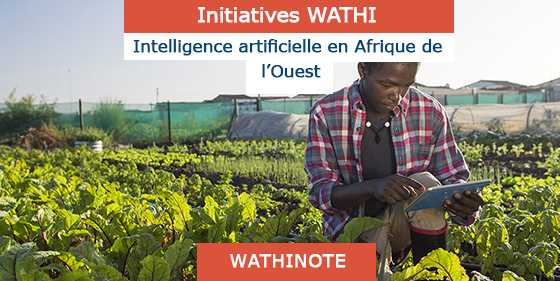

Authors : Thomas Holm Møller, James Matcher, Dr Ellen Czaika
Affiliated organization : EY and Microsoft
Type of publication : Report
Date of publication : 2018
Role of AI in Middle East and African Business
AI gets much attention at top management level. Across the region, 80% of surveyed companies have AI as an important topic up at C-suite level, regardless of their degree of AI maturity. Interest also gaining ground at the lower levels. Half of the companies also include other managerial levels, where the implementation actually takes place, and who are important for bringing together the strategy from top management to the workforce who will be most involved with AI.
Despite AI being in the early journey stages in this region, it has managed to anchor itself to other digital initiatives as a peer or higher. The importance of AI alongside its digital peers also differs across the sectors. Retail, Professional Services and Financial Services are the standout sectors where AI is important.
The vast majority of organisations surveyed have not progressed beyond the early pilot stages as they grapple with early adoption issues. However, a few organisations are definite leaders in their respective sectors.
As consumer trends and demands change rapidly, companies face challenges in being able to create or transform products and services that are tailored to current needs in this winner-takes-all game
Almost all the companies in the study indicated that they have difficulty in identifying use cases to support the business and provide a meaningful return on investment to attract more funding.
ICT&Media and Financial Services are the standout sectors where some companies have gone beyond experimentation, with machine learning models running in a production environment.
Regardless of sector, there are a few companies that are leading, a handful that are bringing up the rear, and the vast majority that are in the Planning or Piloting stages somewhere in the middle.
IT and Digital functions are by far the most prevalent domain – IT resources are directly in contact with many emerging technologies and organizations naturally expect them to explore and investigate these.
With many markets trading in tough economic conditions, executives are under pressure to increase productivity and efficiencies in all operational areas. Mining and Manufacturing see AI applications in supply chain optimization, managing equipment and asset environments in a more predictive manner and strengthening the Health and Safety frameworks.
Business Benefits and Risks
Three quarters of all the respondents are expecting AI to have a significant or high impact on their industry, either through major transformation of existing processes and restructured value chains, or the systemic disruption of the underlying method of doing business altogether and the concomitant shifts in the competitive landscape.
Regardless of sector, there are a few companies that are leading, a handful that are bringing up the rear, and the vast majority that are in the Planning or Piloting stages somewhere in the middle
Most companies expect that AI will optimize their operations, result in efficiences and cost savings, and provide a superior customer experience, all of which are central to their current business. New and exciting opportunities are being explored as a result of experimenting with the AI technologies and learning from pilot projects, and executives in the study are very optimistic about the possibilities that AI will deliver for them.
89% of the regional respondents identified optimization of operations as the top area where they expect AI to deliver financial benefits in the near term, as the time-to-value is generally faster in this domain and AI’s impact is more directly on measurable metrics.
As consumer trends and demands change rapidly, companies face challenges in being able to create or transform products and services that are tailored to current needs in this winner-takes-all game.
Along with the obvious excitement about the benefits that AI can bring, organizations are reflecting on the risks that are linked to disruptive technologies. Executives intuitively sense the value of AI, but are conscious that being caught up in the hype might blind them to the dangers of investing in solutions that are only starting to demonstrate their commercial value.
The lack of clarity around possible new AI legislation can slow down scaled deployments, as leaders worry about investing in areas where the rulebook is still being written. It is unsurprising that the second most common risk mentioned is the impact that AI could have on staff members. Automation anxiety is a very real concern against the backdrop of high unemployment figures.
AI can manage and make sense of big data, but using it effectively requires careful consumption of outputs to know what is useful and what is just noise. AI is also only as good as the data that feeds it, and organizations do not have sufficient infrastructure and data management protocols in place.
Les Wathinotes sont soit des résumés de publications sélectionnées par WATHI, conformes aux résumés originaux, soit des versions modifiées des résumés originaux, soit des extraits choisis par WATHI compte tenu de leur pertinence par rapport au thème du Débat. Lorsque les publications et leurs résumés ne sont disponibles qu’en français ou en anglais, WATHI se charge de la traduction des extraits choisis dans l’autre langue. Toutes les Wathinotes renvoient aux publications originales et intégrales qui ne sont pas hébergées par le site de WATHI, et sont destinées à promouvoir la lecture de ces documents, fruit du travail de recherche d’universitaires et d’experts.
The Wathinotes are either original abstracts of publications selected by WATHI, modified original summaries or publication quotes selected for their relevance for the theme of the Debate. When publications and abstracts are only available either in French or in English, the translation is done by WATHI. All the Wathinotes link to the original and integral publications that are not hosted on the WATHI website. WATHI participates to the promotion of these documents that have been written by university professors and experts.
